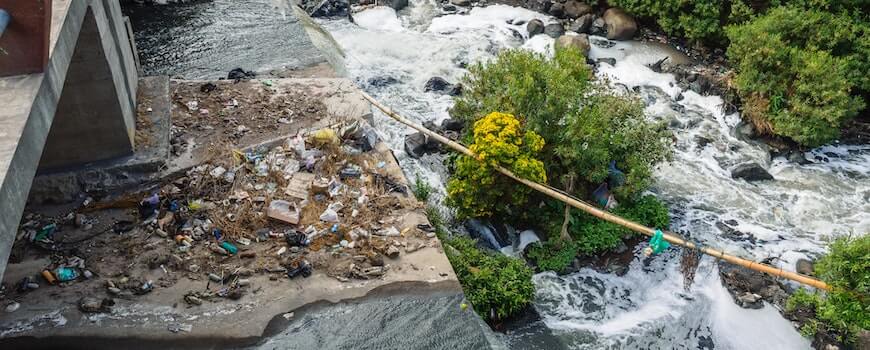
Water pollution is one of the most damaging consequences of industrialization, with many negative effects on the environment. Just like global warming, aquatic pollution is completely caused by human activities, endangering natural ecosystems.
What is water pollution?
Water pollution is a global problem. It affects rivers, seas, and oceans too. Therefore, polluting water has an influence on wildlife, and on people’s lives too: both in villages and cities.
It is not impossible to reduce water pollution or to minimize it. But it needs our full focus and vocation to do so. Unfortunately, the biggest obstacle is human nature: most people just do not care.
Causes of water pollution
Water pollutants are mostly made up of chemical compounds. Most water pollutants are released into the waters by plants and factories. Most of the times it is done indirectly.
An example of indirect pollution of natural waters is the use of fertilizers. The soil will absorb the fertilizers, which will get into the groundwater. Then the polluting material slowly reaches the rivers and then eventually washes into the seas and oceans.
Of course, there are also major accidents worth mentioning: the catastrophe of oil tanker ships, factory leakings, or even nuclear catastrophes.
Water pollutants
There are many water pollutants: fertilizers, pesticides, heavy metals, plastics, and fossil fuels such as petroleum. These materials are bacteriologically or radiologically formed.
Industrial chemical compounds such as heavy metals (arsenic, mercury, cadmium, chromium, and lead) are harmful to our drinking waters.
On top of that, polluting with plastic and microplastic is also deadly to creatures in the ocean.
The effects of water pollution

Nearly three-quarters of the Earth's surface is covered with water. It means that the vast majority of plants and animals on our planet are found in the seas and oceans.
Water means life to them: food, oxygen, shelter, and an environment for reproduction. But water is not only the most important substance for them: it is also a large part of the human body. The consequences of water pollution affect all living things directly or indirectly. We will lose oxygen if corals stop existing. The result could be the extinction of flora and fauna if we do nothing to stop the process.
What to do with aquatic pollution?
There is a long way ahead of us. The root of the problem is that industries are using non-renewable resources for production. With renewable resources, we could avoid oil catastrophes. Also, factories should focus more on R+D in order to minimize the use of pollutant chemical compounds and create products with eco-friendly solutions.
Waste management will need an improvement too, but it is not just the companies’ responsibility. You can buy eco-friendly products, and you can purchase second-hand accessories in order to protect the environment.
Conclusion
- Water pollution is caused by humans
- Oil, heavy metals, and plastic are the most common water pollutants
- We need to act globally if we want to revert water pollution
- Read more about eco-friendly solutions: MET fYOUture!
